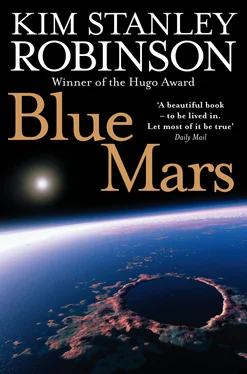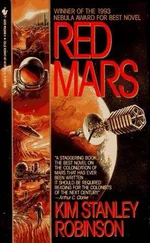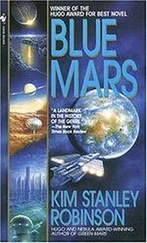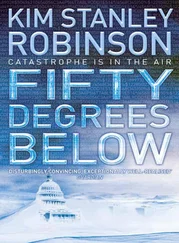A synthesis of systems. And Vladimir Taneev was a very great synthesist; it was said that all the components of the longevity treatment had already been there, for instance, and that Vlad and Ursula had simply put them together. Now in his economic work with Marina he was claiming to have done the same kind of thing. And although he had not mentioned the longevity treatment in this discussion, nevertheless it lay there like the table itself, a big cobbled-together achievement, part of everyone’s lives. Art looked around and thought he could see people thinking, well, he did it once in biology and it worked; could economics be more difficult?
Against this unspoken thought, this unthought feeling, Antar’s objections did not seem like much. Metanational capitalism’s track record at this point did little to support it; in the last century it had precipitated a massive war, chewed up the Earth, and torn its societies apart. Why should they not try something new, given that record?
Someone from Hiranyagarbha stood and made an objection from the opposite direction, noting that they seemed to be abandoning the gift economy by which the Mars underground had lived.
Vlad shook his head impatiently. ‘I believe in the underground economy, I assure you, but it has always been a mixed economy. Pure gift exchange co-existed with a monetary exchange, in which neoclassical market rationality, that is to say the profit mechanism, was bracketed and contained by society to direct it to serve higher values, such as justice and freedom. Economic rationality is simply not the highest value. It is a tool to calculate costs and benefits, only one part of a large equation concerning human welfare. The larger equation is called a mixed economy, and that is what we are constructing here. We are proposing a complex system, with public and private spheres of economic activity. It may be that we ask people to give, throughout their lives, about a year of their work to the public good, as in Switzerland’s national service. That labour pool, plus taxes on private co-ops for use of the land and its resources, will enable us to guarantee the so-called social rights we have been discussing – housing, health care, food, education – things that should not be at the mercy of market rationality. Because la salute non si paga , as the Italian workers used to say. Health is not for sale!’
This was especially important to Vlad, Art could see. Which made sense – for in the metanational order, health most certainly had been for sale, not only medical care and food and housing, but pre-eminently the longevity treatment itself, which so far had been going only to those who could afford it. Vlad’s greatest invention, in other words, had become the property of the privileged, the ultimate class distinction – long life or early death – a physicalization of class that almost resembled divergent species. No wonder he was angry; no wonder he had turned his efforts to devising an economic system that would transform the longevity treatment from a catastrophic possession to a blessing available to all.
‘So nothing will be left to the market,’ Antar said.
‘No no no,’ Vlad said, waving at Antar more irritably than ever. ‘The market will always exist. It is the mechanism by which things and services are exchanged. Competition to provide the best product at the best price, this is inevitable and healthy. But on Mars it will be directed by society in a more active way. There will be not-for-profit status to vital life support matters, and then the freest part of the market will be directed away from the basics of existence toward nonessentials, where venture enterprises can be undertaken by worker-owned co-ops, who will be free to try what they like. When the basics are secured and when the workers own their own businesses, why not? It is the process of creation we are talking about.’
Jackie, looking annoyed at Vlad’s dismissals of Antar, and perhaps intending to divert the old man, or trip him up, said, ‘What about the ecological aspects of this economy that you used to emphasize?’
They are fundamental,’ Vlad said. ‘Point three of Dorsa Brevia states that the land, air and water of Mars belong to no one, that we are the stewards of it for all the future generations. This stewardship will be everyone’s responsibility, but in case of conflicts we propose strong environmental courts, perhaps as part of the constitutional court, which will estimate the real and complete environmental costs of economic activities, and help to co-ordinate plans that impact the environment.’
‘But this is simply a planned economy!’ Antar cried.
‘Economies are plans. Capitalism planned just as much as this, and metanationalism tried to plan everything. No, an economy is a plan.’
Antar, frustrated and angry, said, ‘It’s simply socialism returned.’
Vlad shrugged. ‘Mars is a new totality. Names from earlier totalities are deceptive. They become little more than theological terms. There are elements one could call socialist in this system, of course. How else remove injustice from economy? But private enterprises will be owned by their workers rather than being nationalized, and this is not socialism, at least not socialism as it was usually attempted on Earth. And all the co-ops are businesses – small democracies devoted to some work or other, all needing capital. There will be a market, there will be capital. But in our system workers will hire capital rather than the other way around. It’s more democratic that way, more just. Understand me – we have tried to evaluate each feature of this economy by how well it aids us to reach the goals of more justice and more freedom. And justice and freedom do not contradict each other as much as has been claimed, because freedom in an unjust system is no freedom at all. They both emerge together. And so it is not so impossible, really. It is only a matter of enacting a better system, by combining elements that have been tested and shown to work. This is the moment for that. We have been preparing for this opportunity for seventy years. And now that the chance has come, I see no reason to back off just because someone is afraid of some old words. If you have any specific suggestions for improvements, we’ll be happy to hear them.’
He stared long and hard at Antar. But Antar did not speak; he had no specific suggestions.
The room was filled with a charged silence. It was the first and only time in the congress that one of the issei had stood up and trounced one of the nisei in public debate. Most of the issei liked to take a more subtle line. But now one of the ancient radicals had become angry and risen up to smite one of the neoconservative young power-mongers – who now looked as if they were advocating a new version of an old hierarchy, for purposes of their own. A thought which was conveyed very well indeed by Vlad’s long look across the table at Antar, full of disgust at his reactionary selfishness, his cowardice in the face of change. Vlad sat down; Antar was dismissed.
But still they argued.Conflict, metaconflict, details, fundamentals; everything was on the table, including a magnesium kitchen sink that someone had placed on one segment of the table of tables, some three weeks into the process.
And really the delegates in the warehouse were only the tip of the iceberg, the most visible part of a gigantic two-world debate. Live transmission of every minute of the conference was available everywhere on Mars and in most places on Earth, and although the actual realtime tape had a certain documentary tediousness to it, Mangalavid concocted a daily highlights film that was shown during the timeslip every night, and sent to Earth for very wide distribution. It became ‘the greatest show on Earth’ as one American programme rather oddly dubbed it. ‘Maybe people are tired of the same old crap on TV,’ Art said to Nadia one night as they watched a brief, weirdly distorted account of the day’s negotiations on American TV.
Читать дальше












